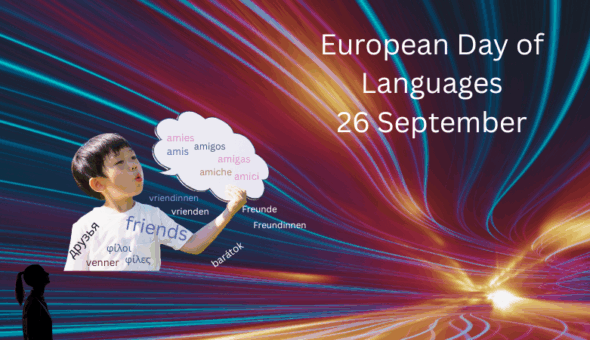To celebrate the UN Chinese Language Day on April 20th, Chinese Teaching Fellow Ying Gao shares with us some four-character idioms that shape the Chinese philosophy of life.
More than just a language
Chinese is one of the oldest written languages still in use today. The Chinese language is not only celebrated for its beauty, but also the deep philosophical worldview embedded within its characters. Beyond being a communication tool, it carries centuries of accumulated wisdom. One of the examples of this is in 成语 (chéng yǔ) — typically four-character idioms that pack layers of meaning into a few syllables. These idioms are like philosophical time capsules, drawing from Confucianism, Taoism, Legalism, and Buddhism — schools of thought that still shape how people live and think across the Chinese-speaking world.
Self-cultivation and social harmony
Many idioms from Confucianism and Legalism centre on how individuals relate to society—but with different focuses. Confucianism emphasizes personal growth as the path to social harmony, while Legalism centres on maintaining order and stability through strict systems of control.
From Confucianism, 温故知新 (wēn gù zhī xīn) — “review the old to understand the new” — is a reminder that learning is a continuous process, rooted in reflection. In today’s world, where innovation is everything, this idiom offers a refreshing take: slow down, look back, and use the past to guide the future.
Another Confucian ideal is expressed in 饮水思源 (yǐn shuǐ sī yuán) — “when drinking water, think of its source.” It’s a beautifully simple yet profound message: always be grateful. Whether it's your family, mentors, or community, remember the people and efforts that helped you get where you are. Confucianism often weaves personal growth into the fabric of social harmony, and idioms like this help keep that thread alive.
Legalism advocates for clear rules and strict enforcement as the key to stability, and many Legalist idioms are about preserving order. For example,以法治国 (yǐ fǎ zhì guó) — “rule the country by law”, reflects a belief that stability comes not from moral leadership but from clearly defined laws and strict enforcement.
Likewise, 赏罚分明 (shǎng fá fēn míng) — “rewards and punishments must be clear” — emphasises fairness and accountability, ideas that still resonate in everything from workplace culture to government policy.
Inner peace and the art of letting go
Other idioms, particularly from Taoism and Buddhism, offer wisdom on how to deal with life’s uncertainties and personal struggles.
Taoism encourages living in tune with the world around us. 顺其自然 (shùn qí zì rán) — “go with the flow of nature” — gently reminds us not to force things. When life gets overwhelming or plans fall apart, this idiom invites us to relax, trust, and adapt.
Similarly, 无为而治 (wú wéi ér zhì) — “govern through non-action” — is about leadership through alignment with natural rhythms rather than micromanagement or control.
From a Buddhist lens, 因果报应 (yīn guǒ bào yìng) — “cause and effect, reward and retribution” — introduces the concept of karma. Our words, actions, and even thoughts carry weight. This idiom nudges us to be more mindful of how we live.
Then there’s 放下执念 (fàng xià zhí niàn) — “let go of attachments.” Whether you’re stuck on past failures, unfulfilled goals, or material desires, this idiom encourages emotional freedom through release. Letting go isn't giving up — it's clearing space for growth and peace.
Why these idioms still matter
These ancient idioms continue to offer clarity in our modern lives — whether we’re dealing with stress, figuring out our purpose, or learning how to be better friends, leaders, or thinkers. In China and across the Chinese-speaking world, these idioms aren’t just used for dramatic effect — they’re alive in everyday speech because they still make sense.
So next time you come across a Chinese idiom, take a moment to look beyond the characters. You might just find a new way to see the world — or even yourself.
Which idiom speaks to you the most? Does it echo something you already believe, or challenge you to think differently?
Further Reading
Feng, Y. (1952). A history of Chinese philosophy (Vol. 1). Princeton University Press.
Feng, Y. (1953). A history of Chinese philosophy (Vol. 2). Princeton University Press.
Lao, Z. (2003). Tao Te Ching. Translated by D.C. Lau. Penguin Classics.
Confucius. (2012). The Analects of Confucius. Translated by Arthur Waley. Vintage.
Responses




Very interesting article! I'll be checking out the further reading for sure. Anything you can also recommend on how Confucianism, Legalism, 等家 are viewed and discussed in modern Chinese society?
I'm really pleased that you liked the blog, Frankie. For further reading, you can try 美的历程 (The Path of Beauty), written by 李泽厚(Li Zehou). You can also try Yu Hua's (余华) novels such as "To Live" (活着) or "Brothers"(兄弟).